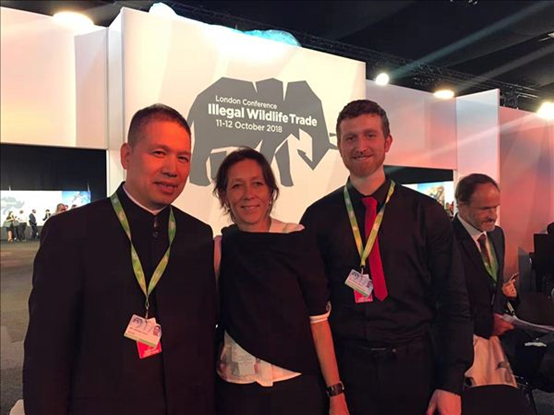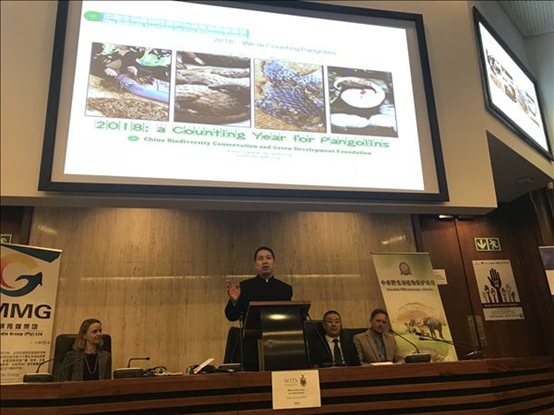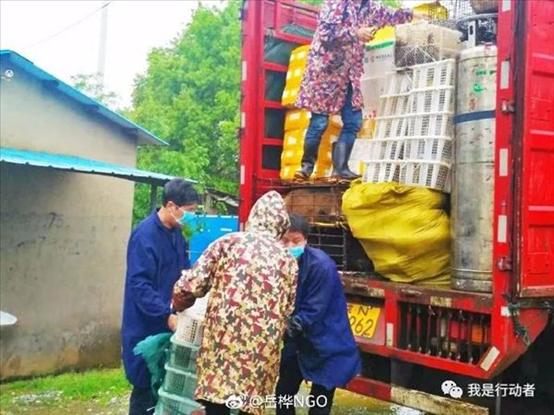[Editor's Note:] Lately, CBCGDF colleagues answered the calls of the colleagues from IUCN/WCPA/OECMs, in terms of the “OECMs | Second Interim update from COP 14” and submitted relevant materials of efforts toward the Post 2020 Global Biodiversity Framework.
This is remarkable because following the adoption of OECM guidelines, an important next step is to comprehensively map and document the conservation interventions that may ultimately be recognized as OECMs. OECMs will help recognize important contributions to the conservation of biodiversity occurring outside PAs and generate a range of important innovations across landscapes and seascapes in the run-up to and beyond 2020.
Also, a progress has been made at CBD COP 14: Agenda Item 24 (‘Spatial Planning, Protected Areas and OECMs’) was considered in Working Group very recently. The Chair requested that Parties provide written submissions to the Secretariat.
CBCGDF is an important member of IUCN, Dr. Zhou Jinfeng, the Secretary-General of CBCGDF is a member of WCPA as well as its OECMs (Task Force on Other Effective Area-Based Conservation Measures). Hence, as our international colleagues are updating on the process and substance of the draft decision know as a conference room paper (CRP), and they are making their assessment now and looking forward to our thoughts, CBCGDF colleagues have provided our work efforts as follows:
China Conservation Area (for something at somewhere) a.k.a CCAfa;
Oppose Electro Fishing Union of CBCGDF (public participation in the Conservation);
Anti-poaching and illegal wildlife trade;
Say NO to inappropriate wildlife release
China’s youth generation’s participating in biodiversity conservation
Include more relevant content of anti-poaching and illegal wildlife trade (IWT) to the Post-2020 Global Biodiversity Framework and to the Aichi Target 12.
According to analysts, wildlife trade is the 4th biggest illegal trade at about $20 billion annually. Therefore, these two areas should be paid more attention, otherwise, dramatic population and range will decline globally which we can not afford.
Take Pangolins, for example, China and Vietnam are the major destinations for traded wildlife, and between 2010 and 2015, at least 120 tons of whole Pangolins, parts, and scales were confiscated by law enforcement. From 2004-2014 over 1 million Pangolins were traded. It is estimated that a Pangolin is killed every 5 minutes.
In China, CBCGDF has been requesting for the disclosure, between 22 August 2017 and 12 April 2018, from the Forestry Department of Guangxi Zhuang Autonomous Region who confiscated 13 living Pangolins. We found that the confiscated Pangolins were hard to trace and some were even dead. Under the legal framework, the Pangolins are still dying, being traded, and missing. In this context, CBCGDF initiated an administrative lawsuit against the Forestry Department of Guangxi Zhuang Autonomous Region, requesting their information disclosure and letting the public know about their assistance and handling of the rescued Pangolins. However, it is difficult for the relevant departments to inquire about the handling and whereabouts of pangolin products. In the meantime, supplies of Pangolins are still found in black markets based on CBCGDF volunteers' investigation. There is still a long way to go in Pangolins protection.
With all the protected areas and legislation for animal protection, the population of wildlife is still declining, some dropping drastically. Wildlife poaching and IWT are rampant inside or outside of the national protected areas. This proves that wildlife poaching and IWT are extremely holding up us against achieving Aichi Biodiversity Targets. Anti-poaching and combating illegal wildlife trade can be the tipping points of pushing biodiversity conservation to a different level as these reflect most of the relationship between wildlife and human. While protected areas and legislation are the static solutions, addressing issues like wildlife poaching and illegal wildlife trade are the dynamic ones.

The Secretary-General of CBCGDF Dr. Zhou Jinfeng (first left) attended the London Conference Illegal Wildlife Trade (IWT) 2018.

The SG of CBCGDF delivered a keynote speech at the Africa - China Wildlife Conservation Conference (Photo: CBCGDF)

In the spring of 2018, CBCGDF volunteers assisted local forest police to seize a vehicle that illegally transported more than 10,000 wild animals.
The "Anti-poaching and Illegal Wildlife Trade" Part is written by Cat
